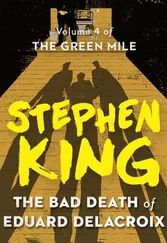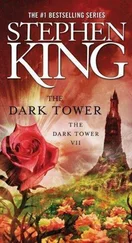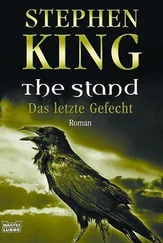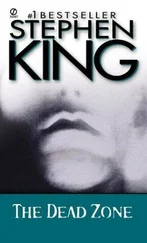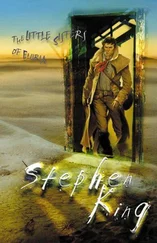Stephen King - The Plant
Здесь есть возможность читать онлайн «Stephen King - The Plant» весь текст электронной книги совершенно бесплатно (целиком полную версию без сокращений). В некоторых случаях можно слушать аудио, скачать через торрент в формате fb2 и присутствует краткое содержание. Жанр: Ужасы и Мистика, на английском языке. Описание произведения, (предисловие) а так же отзывы посетителей доступны на портале библиотеки ЛибКат.
- Название:The Plant
- Автор:
- Жанр:
- Год:неизвестен
- ISBN:нет данных
- Рейтинг книги:5 / 5. Голосов: 1
-
Избранное:Добавить в избранное
- Отзывы:
-
Ваша оценка:
- 100
- 1
- 2
- 3
- 4
- 5
The Plant: краткое содержание, описание и аннотация
Предлагаем к чтению аннотацию, описание, краткое содержание или предисловие (зависит от того, что написал сам автор книги «The Plant»). Если вы не нашли необходимую информацию о книге — напишите в комментариях, мы постараемся отыскать её.
The Plant — читать онлайн бесплатно полную книгу (весь текст) целиком
Ниже представлен текст книги, разбитый по страницам. Система сохранения места последней прочитанной страницы, позволяет с удобством читать онлайн бесплатно книгу «The Plant», без необходимости каждый раз заново искать на чём Вы остановились. Поставьте закладку, и сможете в любой момент перейти на страницу, на которой закончили чтение.
Интервал:
Закладка:
Out my window I see a full moon riding serenely in the still-southern sky, a silver dollar pancake of a moon. So my Mama called it, and tonight it has gone full without her. For the first time in sixty-two years it has gone full without her. I sit here writing and feel the tears sliding down my cheeks. Oh Mama, how I weep for you! How yo littlest chile, de one dem white boys used to call little ole blueblack, how dat chile do weep! Tonight I is a Stephen Foster fiel' nigger fo sho! Yassuh! Mama in de col' col' groun'! Yes ma'am!
Estranged from my sisters and my brother as well. Where will I be buried, I wonder? In what strange ground?
Anyway, it came out. All the bitterness. And the hate? Was it hate I saw in their eyes? In my dear Maddy's eyes? She who used to hold my hand when we went to school, and who used to comfort me when the others teased me and called me blueblack or bluegum or L'il Heinie on account of the time in first grade when my pants fell down? I want to say no and no and no, but my heart denies that no. My heart says it was. My heart says yes and yes and yes.
There was a family gathering at the house this afternoon, the last act of the sadly prosaic drama that began with Mama's heart attack on the 25th. Michael and Olympia were the nominal host and hostess. It began with coffee, but soon the wine was circulating in the parlor and something quite a bit stronger out on the back porch. I didn't see my brother or any of my sisters in the house, so checked the porch. Floyd was there, drinking a little glass of whiskey and “memorating” (Mama's word for reminiscence) with some of her cousins, and Orthina and Gertrude, from her book-circle (both ladies decorous but undoubtedly tiddly), and Jack Hance, Evvie's husband. No sign of Evvie herself, or Sophie, or Madeline.
I went looking for them, worried that they might not be all right. Upstairs, from the room at the end of the hall where Mama slept alone for the last dozen years since Pop died, I finally heard their voices. There was murmuring; there was also low laughter. I went down there, my footsteps muffled by the thick hall runner, doing a little memorating myself—on Mama's bitter complaints about that thick runner and how it used to show the dirt. Yet she never changed it. How I wish she had. If they had heard me coming—just the simple sound of approaching footfalls—everything might have been different. Not in reality, of course; dislike is dislike, hate is hate, those things are at least quasi-empirical, I know. It is my illusions that I am talking about. The illusions of my family's regard, the illusions of what I myself had always believed they believed: brave Riddley, the Cornell graduate who has taken a series of menial jobs, work for the body while the mind remains free and uncluttered and able to continue work on the Great Book, a kind of fin de siecle Invisible Man. How often I have invoked the spirit of Ralph Ellison! I even dared to write him once, and received a kind, encouraging reply. It hangs framed on the wall of my apartment, over my typewriter. Whether I will be able to continue on after this is anybody's guess... and yet I think I must. Because without the book, what else is there? Why dere's de broomhandle! De can o' Johnson's flo' wax! De squeegee for de windows and de brush for de tawlits! Yassuh!
No, there must be the book. In spite of everything, because of everything, there must be this book. In a very real sense, it's all I have left.
All right. Enough crybaby stuff. Let's get down to it.
I've already written here about the reading of my Mama's last will and testament on the day between her wake and her burial, and how Law Tidyman, her lifelong friend, allowed most of it to stand in her own words. It struck me passing strange then (although I did not put it down, being tired and grief-struck, states of remarkable similarity) that Mama would have asked Law to do it, old friend or not, rather than her own son, who is now considered one of the best lawyers of any color, at least on this side of Birmingham. Now perhaps I understand that a little bit better.
In her will, Mama wrote that she wanted “all cash, of which I do have a little, to go to the Blackwater Library Fund. All negotiable items, of which I do have yet a few, should be sold by my executor at top price available within the twelvemonth following my death, and all proceeds donated to the Blackwater High School Scholarship Fund, with the understanding that any such resulting scholarships, which may be called Fortuna Walker Scholarships if the Committee would so honor me, should be given without regard to race or religion, as all during my life I, Fortuna Walker, have believed Whites to be every bit as good as Blacks, and Catholics almost as good as Southern Baptists.”
How we chuckled at that nearly perfect microcosm of all her wit. But there was no chuckling this afternoon. At least, not after my sisters looked up from where they sat on her bed and saw me standing shocked in the doorway.
By then I had seen all I needed to see. “Anyone a step over puffick idiot'd know what that was about,” Mama herself no doubt would have said—more memoration. And what I saw in my dead mother's bedroom will be printed on my memory until memoration itself ceases.
Her dresser drawers were open, all of them. Her things were still in the top ones, although many of her blouses and scarves slopped over the edges, and it was clear that everything had been stirred about and pawed through—a puffick idiot could have seen that. But the things which had been in the two bottom drawers had been pulled out and lay scattered in drifts across her rose-colored rug, the one which had never shown dirt because nothing dirty was allowed in that quiet room. At least not until last evening, that is, when she was dead and unable to stop it. What made it worse, what made them seem to me so much like pirates and plunderers, was the fact that it was her unmentionables lying there. My dead mother's underwear, scattered hell to breakfast by her daughters, who in my eyes made Lear's look kind by comparison.
Am I unkind? Self-righteous? I no longer know. All I know is that my heart hurts and my head is roaring with confusion. And I know what I saw: her drawers opened, her slips and underpants and righteous Playtex girdles spread across the floor. And they on the bed, laughing, with a red tin box on the coverlet in the middle of their circle; a red box with its Sweetheart Girl cover taken off and laid aside. It had been full of cash and jewelry. Now it was empty and it was their hands that were full of her greenbacks and heirlooms. How much might their trove have been worth? Not a huge amount, but by no means paltry; some of the pins and broaches could have been costume stuff, but I saw two rings whose stones were, according to Mama herself, diamonds. And Mama didn't lie. One of them was her engagement ring.
It was perhaps a minute before they saw me. I said nothing myself; I was literally struck dumb.
Evelyn, the oldest, looking young in spite of the gray in her hair, with her hands full of old tens and fives, put aside by my mother over the years.
Sophie, counting through official-looking papers that might have been stock certificates or perhaps treasury bonds, her fingers speeding along like a bank-teller ready to cash out her drawer for the weekend.
And my youngest sister, Maddy. My schoolyard guardian angel. Sitting with her palms full of pearls (probably cultured, I grant you) and earrings and necklaces, sorting through them, as absorbed as an archeologist. That was what hurt the worst. She hugged me when I got off the plane, and wept against my neck. Now she picked through her dead mother's things, the good stuff and the trumpery, grinning like a jewel thief after a successful heist.
All of them grinning. All of them laughing.
Читать дальшеИнтервал:
Закладка:
Похожие книги на «The Plant»
Представляем Вашему вниманию похожие книги на «The Plant» списком для выбора. Мы отобрали схожую по названию и смыслу литературу в надежде предоставить читателям больше вариантов отыскать новые, интересные, ещё непрочитанные произведения.
Обсуждение, отзывы о книге «The Plant» и просто собственные мнения читателей. Оставьте ваши комментарии, напишите, что Вы думаете о произведении, его смысле или главных героях. Укажите что конкретно понравилось, а что нет, и почему Вы так считаете.


